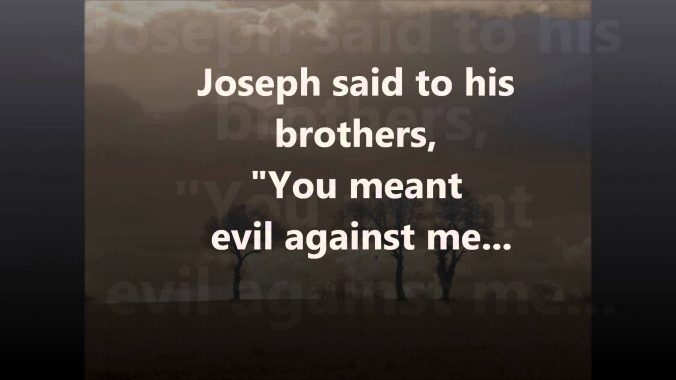 “The 20th century will probably go down in history as the exemplar of geopolitical interstate conflict with two World Wars centered in Europe followed by over four decades of the Cold War between the United States and Soviet Union. The 21st century, in contrast, could well become a period of lawlessness and disorder—a century in which states are in long-term decline . . . ” (“Lawlessness and Disorder: An Emerging Paradigm for the 21st Century” by Phil Williams).
“The 20th century will probably go down in history as the exemplar of geopolitical interstate conflict with two World Wars centered in Europe followed by over four decades of the Cold War between the United States and Soviet Union. The 21st century, in contrast, could well become a period of lawlessness and disorder—a century in which states are in long-term decline . . . ” (“Lawlessness and Disorder: An Emerging Paradigm for the 21st Century” by Phil Williams).
“Now concerning the coming of our Lord Jesus Christ and our being gathered together to him, we ask you, brothers, not to be quickly shaken in mind or alarmed, either by a spirit or a spoken word, or a letter seeming to be from us, to the effect that the day of the Lord has come. Let no one deceive you in any way. For that day will not come, unless the rebellion comes first, and the man of lawless is revealed . . . ” (2 Thessalonians 2:1-3b).
In the first quote above, a secular educator predicts this century “could well become a period of lawlessness” (for blog and entire article see https://theoldpreacher.com/the-rebellion/) In the second, the apostle writes about a sinister “man of lawlessness” to be revealed.
The Thessalonians, persecuted for their faith , feared that “the day of the Lord” had come, and they had missed Christ’s Second Coming, which would save them from suffering. Paul, though unsure how that rumor started, warns them against being deceived.
Hard for us to relate, no? We’re not panicked over missing Jesus’ coming. In fact, caught up in our crowded calendars, it seems we care too little about his return or the world’s conditions leading to it.
For that day will not come, unless the rebellion comes first, and the man of lawlessness is revealed, the son of destruction,who opposes and exalts himself against every so-called god or object of worship, so that he takes his seat in the temple of God, proclaiming himself to be God. Do you not remember that when I was still with you I told you these things? (2 Thessalonians 2:3b-5).
This “man of lawlessness” will be a man (Greek, anthropos) empowered by Satan (“The coming of the lawless one is by the activity of Satan with all power and false signs and wonders . . . “), who openly defies God (“opposes and exalts himself against every so-called god or object of worship, so that he takes his seat in the temple of God, proclaiming himself to be God”).
Why is lawlessness called a “mystery”, especially when we see evidence of it in Washington (when politicians violate the Constitution, lie under oath to Congress, etc.) and in Syria (when Syrians and Russians brazenly slaughter innocent civilians) and in the streets of Chicago and Baltimore and Ferguson (when protesting gangs defy police)? Because lawlessness is a power at work “beneath the radar.” One day, according to God’s purposes, it will be fully and visibly unleashed. The results will be catastrophic. Until then lawlessness and “the man” are restrained . . .
And you know what is restraining him now so that he may be revealed in his time. For the mystery. And then the lawless one will be revealed, whom the Lord Jesus will kill with the breath of his mouth and bring to nothing by the appearance of his coming (2 Thessalonians 2:6-8).
Unlike the Thessalonians, we don’t know what or who the restrainer is. Commentators have made educated guesses—the church, the Holy Spirit, gospel preaching, governments and so on. I’m rather intrigued by governments and governors being the restrainer. As long as they maintain a modicum of law and order, lawlessness and its “man” are relatively restrained. But if governments descend into chaos lawlessness will result and “the man of lawlessness” will be free to assume authority.
Paul doesn’t describe the suffering that unrestrained lawlessness will bring. But just think of the horrors men of lawlessness (who wrote their own laws and set themselves up like gods)—men like Adolph Hitler, Joseph Stalin and Pol Pot—inflicted on the world! And they were only precursors of “the man of lawlessness” to come!
Nevertheless, his dominance will be short-lived and easily ended (“the lawless one will be revealed, whomthe Lord Jesus will kill with the breath of his mouth and bring to nothing by the appearance of his [that is, the Lord Jesus’] coming”).
The coming of the lawless one is by the activity of Satan with all power and false signs and wonders, and with all wicked deception for those who are perishing, because they refused to love the truth and so be saved. Therefore God sends them a strong delusion, so that they may believe what is false, in order that all may be condemned who did not believe the truth but had pleasure in unrighteousness” (2 Thessalonians 2:9-12).
Upon those who “refused to love the truth and so be saved” God sends “a strong delusion. ” Its purpose? , ” . . . so that they may believe what is false, in order that all may be condemned who did not believe the truth but had pleasure in unrighteousness.” Note the choice made by unbelievers isn’t just intellectual or “spiritual”. It’s hedonistic, specifically one of pleasure. Those who found greater pleasure in what God calls “unrighteousness” will be condemned in final judgment.
Paul draws from Daniel.
Lest we think “the man of lawlessness” is a biblical outsider mentioned only once in Scripture, he recalls Daniel’s prophecies in the 6th century B.C.
“As for the ten horns, out of this kingdom ten kings shall arise, |
and another shall arise after them;
he shall be different from the former ones,
and shall put down three kings.
He shall speak words against the Most High,
and shall wear out the saints of the Most High,
and shall think to change the times and the law;
and they shall be given into his hand for a time, times, and half a time”
(Daniel 7:24,25).
“His power shall be great–but not by his own power;
and he shall cause fearful destruction and shall succeed in what he does,
and destroy mighty men and the people who are the saints.
By his cunning he shall make deceit prosper under his hand,
and in his own mind he shall become great.
Without warning he shall destroy many.
And he shall even rise up against the Prince of princes,
and he shall be broken–but by no human hand.”
(Daniel 8:24,25)
“And the king shall do as he wills.
He shall exalt himself and magnify himself above every god,
and shall speak astonishing things against the God of gods.
He shall prosper till the indignation is accomplished;
for what is decreed shall be done.”
(Daniel 11:36)
These prophecies find multiple fulfillment. First, during the Macabbean wars in 167 B.C., when Antiochus Epiphanes (“the visible god”) attacked Jerusalem, sacrificed a pig on the temple altar and tried to exterminate the Jews. Second, when Rome attacked Jerusalem in 66 A.D. and, after protracted war, destroyed the temple in 70 A.D. And, third, still to come in the last of the last days when the “temple” will be profaned by the ultimate “man of lawlessness.” (Those who hold that Jews will rebuild a literal temple in Jerusalem believe “the man of lawlessness” will sit there. Those who hold that “temple” refers to the church, as it does often in the New Testament, hold that his sitting is metaphorical but just as offensive.)
Last of the Last Days’ Lawlessness.
It should concern us, maybe even frighten us. Contrary to popular thinking, the world is not evolving up. We didn’t start in a primal swamp and develop into a better and better humanity. The opposite is true. God created the first man and woman “very good.” It’s been downhill ever since. Humans who created the Smart Phone are killing each other like barbarians. And times will worsen.
Our only hope lies with the One who is coming again . . .
For this we declare to you by the word of the Lord,
that we who are alive, who are left until the coming of the Lord,
will by no means precede those who have died.
For the Lord himself, with a cry of command,
with the archangel’s call and with the sound of God’s trumpet,
will descend from heaven, and the dead in Christ will rise first.
Then we who are alive, who are left,
will be caught up in the clouds together with them
to meet the Lord in the air;
and so we will be with the Lord forever.
Therefore encourage one another with these words.
(1 Thessalonians 4:15-18, NRSV)
And then the lawless one will be revealed,
whom the Lord Jesus will destroy with the breath of his mouth,
annihilating him by the manifestation of his coming . . .
So then, brothers and sisters,
stand firm and hold fast to the tradition
that you were taught by us,
either by word of mouth or by our letter.
Now may our Lord Jesus Christ himself and God our Father,
who loved us
and through grace gave us eternal comfort and good hope,
comfort your hearts
and strengthen them in every good work and word.
(2 Thessalonians 2:8,15-17, NRSV)



Recent Comments